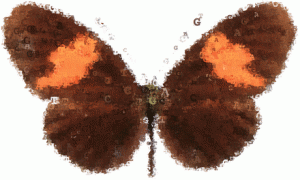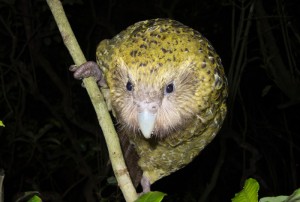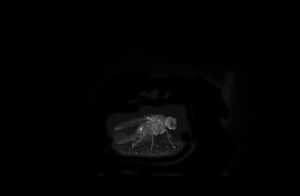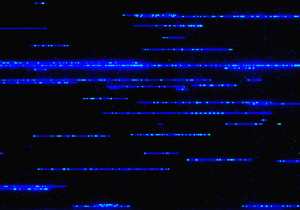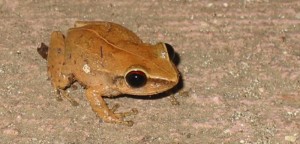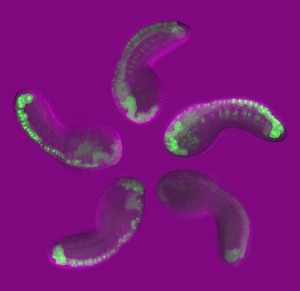Enter your address to receive notifications about new posts to your email.
Articles tagged Genomics
(69 results)
-
Evolving butterflies and genome assemblies
The dizzying array of wing patterns in Heliconius butterflies has served as a model for evolution and adaptation in the wild for more than a century. The genus is most famous for the way different species within a geographic region tend to converge on similar wing markings—known as biological mimicry. In the latest issue of…
-
Kākāpō 125 Genomes Project: Sequencing an entire species
In 1996, when I started researching the conservation genetics of New Zealand’s critically endangered parrot, the kākāpō (Strigops habroptilus), little was known of the species’ genome. On many occasions after a long day in the molecular lab on the hunt for an elusive gene, I found myself imagining that I had the complete genome of…
-
Leonid Kruglyak honored with 2016 Novitski Prize
Leonid Kruglyak (HHMI/University of California, Los Angeles) has been awarded the 2016 Edward Novitski Prize for his extraordinary level of creativity and intellectual ingenuity in the solution of significant problems in genetics research. “Dr. Leonid Kruglyak has been a pioneer in human genetics for over 15 years…. he continues to pose questions and do experiments…
-
Genetics Society of America awards Detlef Weigel the 2016 GSA Medal
Detlef Weigel (Max Plank Institute for Developmental Biology, Tuebingen) has been awarded the GSA Medal for his outstanding contributions to the field of genetics in the last 15 years. “Detlef’s blend of biology, genetics, and genomics technology has been key to many advances at the intersection of modern plant developmental and evolutionary biology”, said…
-
The evolution of Dark-fly
On November 11, 1954, Syuiti Mori turned out the lights on a small group of fruit flies. More than sixty years later, the descendents of those flies have adapted to life without light. These flies—a variety now known as “Dark-fly”—outcompete their light-loving cousins when they live together in constant darkness, according to research reported in…
-
Mapping structural variants with nanochannel arrays
Short-read sequencing has fueled the acceleration of genetic research But though these next-generation methods are fast and efficient, they can’t do everything well. One important area in which short-reads fall short is detecting structural variants (SV), where chunks of the genome are deleted, inserted, repeated, inverted, or in some other way shuffled around compared to…
-
An uncertain future for biological databases
An article in the most recent issue of Science highlights a growing concern about the continued support of the biological databases on which our community depends. Indeed, 2015 GSA President Jasper Rine was quoted as saying these resources are “critical for our daily life as geneticists and biomedical researchers.” Many of the model organism databases (MODs) used…
-
Frog fungus gets lazy in the lab
Amphibians around the world have been devastated by the spread of the deadly fungus Batrachochytrium dendrobatidis (Bd). But although many populations have been decimated, others have survived the same threat. One reason for such different outcomes is variation in virulence between Bd isolates. In the latest issue of G3, Refsnider and Poorten et al. investigate…
-
pgEd Briefings: Increasing policymakers’ interest in genetics
Johnny Kung, Director of New Initiatives for the Personal Genetics Education Project (pgEd), fills us in on their latest Congressional briefing. A version of this post is published on the pgEd website and is posted here with permission. On Nov. 17, our group, the Personal Genetics Education Project at Harvard Medical School, held a Congressional…
-
The mighty sea squirt
Today’s guest author is Emma Farley, a postdoctoral researcher in Mike Levine’s lab, which recently relocated to Princeton (formerly at University of California, Berkeley). Sea squirts (Ciona intestanalis) are a classic system for the study of development. They were a favorite of early developmental biologists like Laurent Chabry, Ed Conklin, and Thomas Hunt Morgan. Over…
-
Read/write access to your genomes? Using the past to jump to the future
Today’s guest author is Razib Khan, who is currently a graduate student in genomics at UC Davis. Outside of his scientific work he is interested in history, religion and philosophy, among other things. You can follow him on Twitter at https://twitter.com/razibkhan. If the story of the last century was the maturation of physical science, the plot of the coming…


